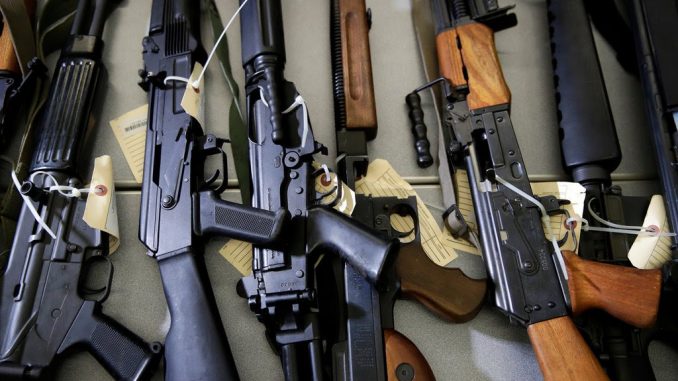
Everyone is debating “red flag” laws like they’re some new thing, but California has had variations of them for decades. We call them domestic violence restraining orders, civil harassment restraining orders, workplace restraining orders, elder abuse restraining orders, mental health seizures and prohibition orders, and, more recently, gun violence restraining orders.
They’re all meant to disarm dangerous people — but they’re all fundamentally flawed.
None of these red flag laws would have prevented recent mass shootings. And in my 23 years practicing law in the heart of Silicon Valley, I have litigated dozens of these cases. I’ve seen firsthand the practical enforcement problems that emerge in real-life cases.
These kinds of court orders are usually obtained from a judge ex parte. That’s fancy Latin for: The judge only hears one side of the story, it is not your side, and you may not even know about it until after the fact. Then they immediately strip you of fundamental constitutional rights for the duration of the orders. You’ll get your “full due process” hearing, but not until later.
And any violation of these orders is separately punishable as a crime. So even if you are innocent of the underlying conduct that inspired the “red flag” order, if you violate the order pending your hearing, you can still face criminal charges.
(snip)
You are, of course, expected to comply. But since you cannot legally possess guns upon being served with the order, how are you supposed to transport your guns to surrender them? Perhaps you could just call the police and tell them you were served with a “red flag” order – marking you a “dangerous and volatile” person (even if you’re not) – and ask them to come pick up your guns.
That kind of situation is ripe for danger. In one situation in Baltimore, police ended up shooting a man when they came to collect his guns under a “red flag” law.
Or perhaps you could take your guns to a local gun dealer and ask them to store them for you – that is, if you can find one that’s willing. In my experience, storage will cost you about $200 per month for a couple of guns. And that might be the best deal you can get. Local governments are now charging people thousands of dollars to store guns that are confiscated, and they tack on a charge for inventory and processing fees.
In one case in Southern California, a client had to pay a $1,000 ransom, that was reduced from an initial “offer” of $4,000, to get his 50-gun collection back.
Experienced counsel to defend you in a “due process” hearing will run about $15,000 in fees. If you lose and want to appeal, expect to spend another $25,000 to $100,000 in fees and costs. And even with all of that, you might still lose.
To win these hearings, you have to refute an allegation that you pose a danger to yourself or others where a judge already issued a temporary ex parte order that concluded you were already a danger. Many judges will likely err on the side of caution, and against your rights.
As a practical matter, if the government’s interest is in separating a potentially-dangerous person from guns, it makes no sense to leave other guns that belong to family members in the home. So, if you live with someone that gets a red flag order issued against them, then you and others living in the same home risk losing your guns, too.
Think that’s a fantasy?
Ask Lori Rodriguez, a plaintiff in a case that has been kicking around the California and federal courts for six years. The Ninth Circuit Court recently invented a new exception to the Fourth Amendment’s warrant requirement. The court approved the police seizing Rodriguez’s firearm which was owned, registered, and locked in a gun safe , from her, while the police were at the home seizing firearms from a differentfamily member.
Even if you win, the judge isn’t going to just hand your guns back to you at the end of the hearing. It’s probably a good idea to “lawyer up” just to go through the process of recovering your guns, so you don’t go to jail or prison for accidentally breaking an obscure firearm law or regulation. You wouldn’t want to set off a red flag.
*see full story by The Washington Examiner